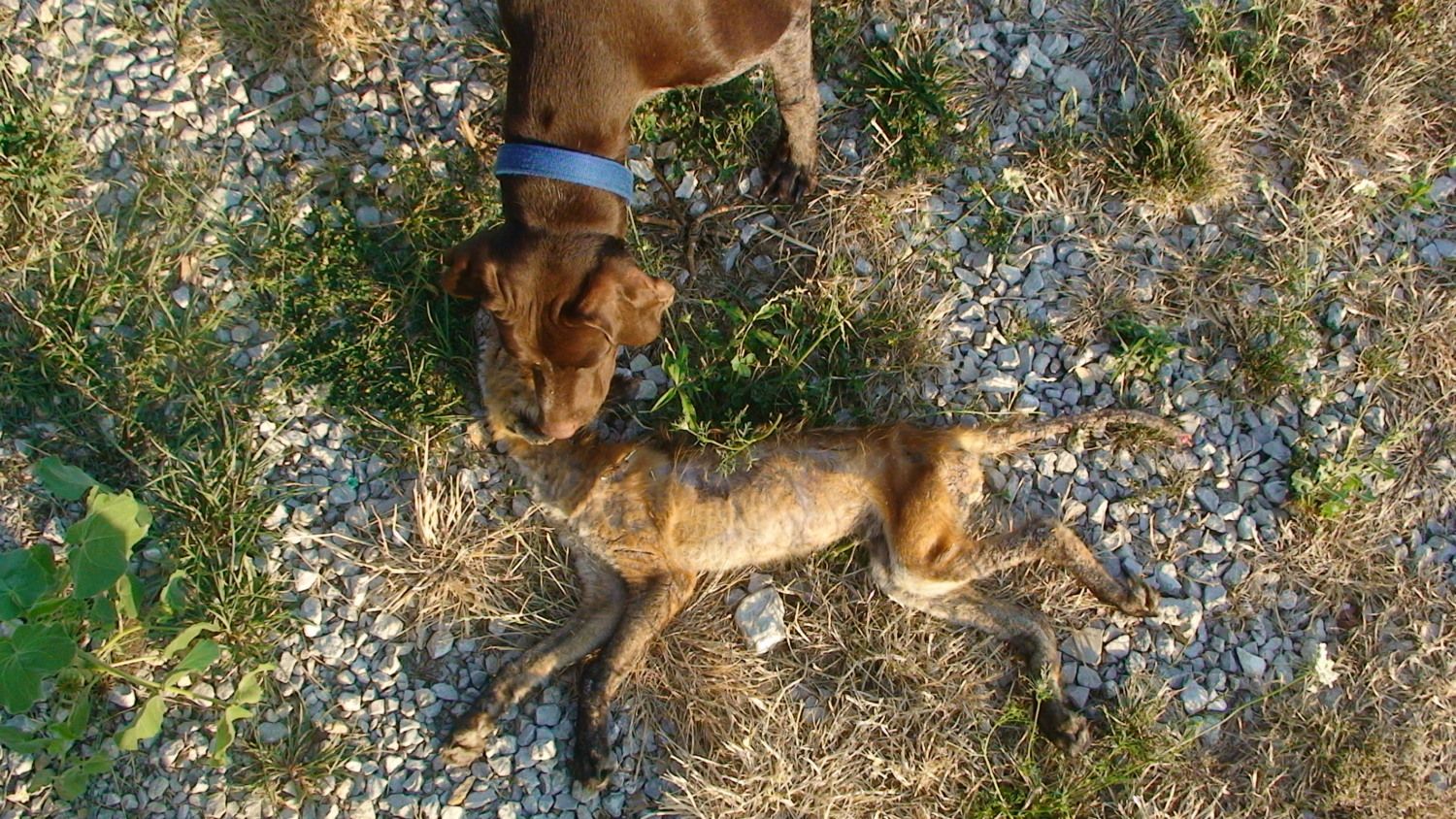- Feb 17, 2012
- 61
- 3
- 30
Contrary, Scoob's behavior actually makes perfect sense if you think about it. He is a bird dog - therefore a breed that is meant to work in close relationship with humans. A traditional LGD breed is selected to have zero (or next to zero) reliance on humans. So, they have worked out a method that uses Scoob's natural instincts to their advantage. Really a great job of training if you ask me.
Yes, the behavior reminds me of one of my neighbor's Vizlas.




